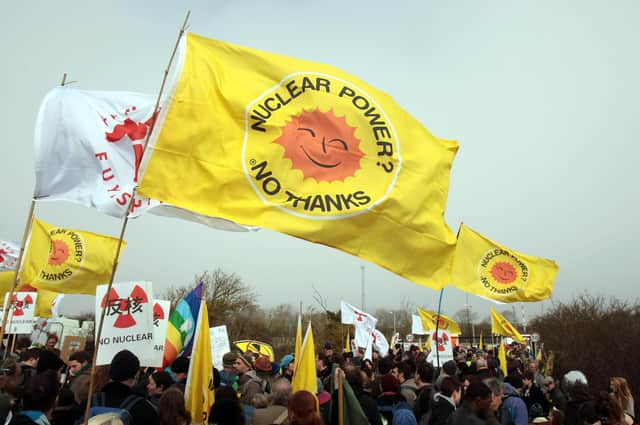Climate change: Greens' obsessive opposition to nuclear power has harmed efforts to stop global warming – Brian Wilson


The fact it is taking place under the UK presidency of the UN Climate Change Conference of the Parties is incidental in comparison to the truly universal objectives – “to secure global net-zero by mid-century and keep 1.5 degrees within reach”.
As mood music for Mr Kerry’s arrival, we had floods in Germany and fires in California. The dystopian vision of a planet that is barely habitable and the most secure places become subject to calamity seems more credible than even a few weeks ago.
Advertisement
Hide AdAdvertisement
Hide AdNone of this need come as news. In the late 1990s, it was clear to anyone who cared to look that something big and real was happening which demanded a rapid transition to low-carbon energy – something that cannot be achieved by any one country alone.
Nor could it happen through pious hopes. China and other coal-rich countries would keep burning coal. The immediate question was how they burnt it in order to reduce – not eliminate – environmental damage. The difference between these two approaches equated to the entire effort of a medium-sized country.
In other words, absolutism was the enemy of the achievable. Unrealistic demands were pointless but gradualism could be accelerated. America with its flagrant disregard for the environment was the biggest culprit. Weaning it away from gas-guzzlers was a decades-long process which should have been ruthlessly truncated.
The UK did not too badly. We put in place one of the world’s most effective schemes to incentivise renewable energy and phase out coal. We set targets and meant them. But there were two serious deficiencies in our approach (leaving aside the lamentable failure, particularly in Scotland, to turn green energy into jobs).
Whatever the other arguments about nuclear power, from a climate change perspective, running it down was folly. It meant everything we did on renewables was, in carbon reduction terms, only substituting for the closure of nuclear stations, and probably not even that. Intelligent environmentalists realised that and said so. The unco’ guid Greens either did not understand or did not care.
The second mistake was to confuse capacity – the stuff of over-hyped press releases about a windfarm supplying hundreds of thousands of homes – with security.
This contrast is highlighted dramatically as I write. In theory, Scotland and the UK have enough renewables to serve the country with some to spare.
In reality, just three – repeat three – per cent of our electricity, on this calm day, is coming from wind; 12 per cent from solar; 11 per cent from nuclear and a massive 48.4 per cent from gas. With three per cent still from coal, more than half is from fossil fuels – an entirely avoidable outcome if we paid attention to base-load and storage.
Advertisement
Hide AdAdvertisement
Hide AdWhile these are sobering figures, they are still a lot better than, let’s say, Germany and this is where Green sanctimony should be called out. From their arrival on the German political stage as serious players, the Greens were obsessed with getting rid of nuclear power far more than concerned about climate change.
In 2000, they extracted an undertaking for civil nuclear to disappear within 20 years. The result is that every breath of wind and blink of sunlight harnessed by the German renewables industry in the meantime has been required to replace carbon-free nuclear electricity rather than add to a clean mix. To this day, a quarter of German electricity comes from coal. What a Green triumph!
The history of recent decades tells us that speeding up the transition to a low-carbon energy mix is entirely possible and can create economic and environmental benefits along the way. Developing countries must be helped rather than hectored into making their contribution.
But no number of high-minded statements or hypocritical bids for high moral ground will be substitutes for the practical actions each is capable of. Glasgow needs to be a conference of deliverable solutions more than high-flown rhetoric.
A message from the Editor:
Thank you for reading this article. We're more reliant on your support than ever as the shift in consumer habits brought about by coronavirus impacts our advertisers.
If you haven't already, please consider supporting our trusted, fact-checked journalism by taking out a digital subscription.
Comments
Want to join the conversation? Please or to comment on this article.
